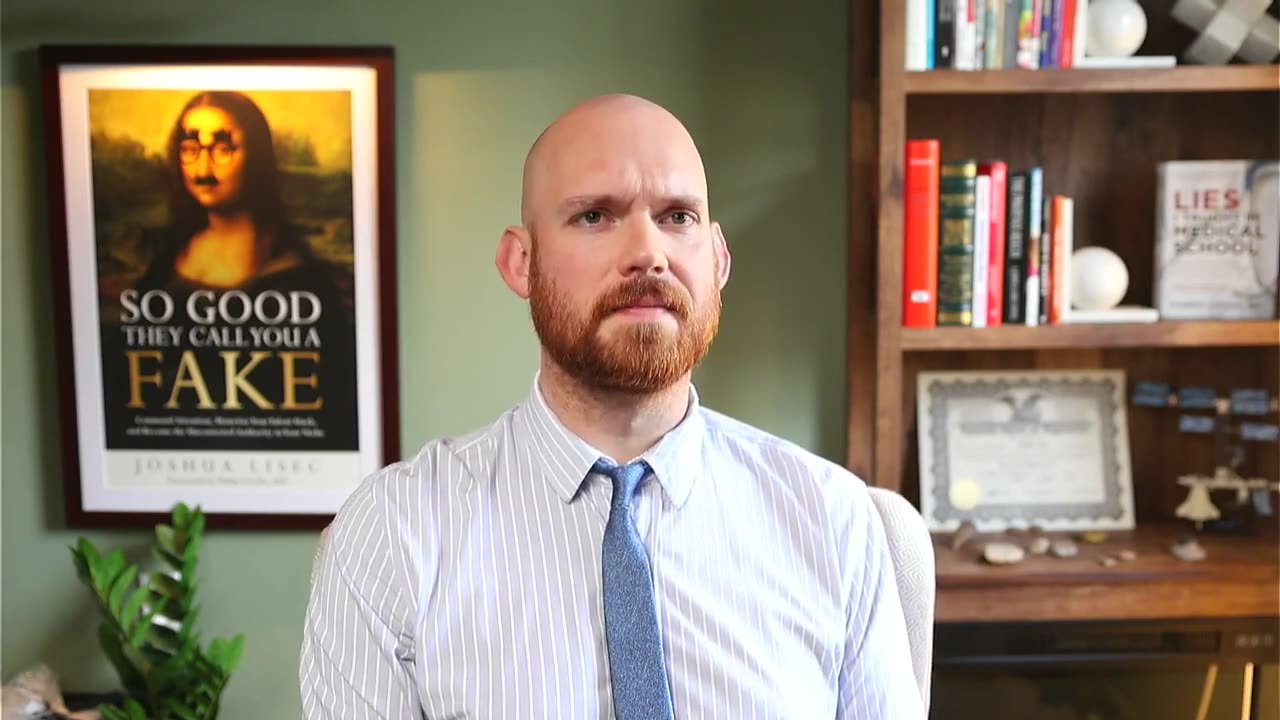Premium Only Content

The Myth of Consistency Bias ft. Ethical Persuasion Techniques & Examples — Daily Persuasion Ep. 89
Would you like to write a persuasive BOOK? One that changes minds and influencers behavior for years to come? Start with a GOLDEN book idea. Let NEW YORK TIMES bestselling author Joshua Lisec teach you: https://lisecghostwriting.com/golden
ABOUT TODAY'S EPISODE:
What if everything you’ve learned about consistency bias is a myth—and it’s sabotaging your persuasive power?
Welcome to Daily Persuasion Ep. 89: “The Myth of Consistency Bias ft. Ethical Persuasion Techniques & Examples” with Joshua Lisec, where we shatter conventional wisdom and reveal what truly makes people trust, follow, and act. In this shorter but power-packed episode, Lisec challenges the overhyped role of consistency in persuasion—and instead introduces you to a far more powerful concept: integrity persuasion.
Most people associate consistency persuasion with the idea that we like people who behave in predictable ways. It’s true—sort of. It’s why the consistency bias, a term made popular by Robert Cialdini in his Cialdini principles, is often touted as one of the most effective persuasion techniques in marketing and leadership. But as Lisec explains, that’s only half the truth.
Think about it: nobody buys a product, falls in love, or hires a leader just because they’re “consistent.” In real-world persuasion psychology, people are moved by values, integrity, and relevance. And that’s the core of this episode: ethical persuasion isn’t about robotic consistency—it’s about aligning actions with stated values, especially when it’s inconvenient. That’s what builds trust. That’s what inspires. That’s what influences.
Joshua Lisec unpacks the myth of consistency with razor-sharp insight, showing how so-called persuasive techniques can fall flat when they lack emotional resonance. You’ll see why many examples of persuasion in advertising rely on perceived integrity—not repetition—for their effectiveness. It’s not about being consistent with everything; it’s about being consistent with what matters. And that’s a radical shift in how we think about the principles of persuasion.
You’ll also hear practical, ethical persuasion techniques examples you can apply immediately—whether you're trying to influence at work, strengthen your relationship, or lead more effectively. Lisec dives into how to apply integrity persuasion in the workplace, how to handle moments where inconsistency can be justified, and how to restore trust after a misstep. This isn’t theory—it’s tactical persuasion mastery.
In classic Daily Persuasion style, Lisec also gives real-world persuasion examples and questions that prompt deep reflection: When did you last promise something that mattered… and didn’t follow through? That’s where consistency persuasion really kicks in—not as a gimmick, but as a moral and emotional force.
This episode is a must-watch if you want to:
• Discover why consistency bias is often misunderstood
• Learn what separates ethical persuasion from manipulative tactics
• Explore how to persuade someone to do something without sounding like a salesperson
• See how techniques of persuasion in writing shift when integrity is your anchor
• Recognize how consistency Cialdini theory can fall short in human relationships
• Apply persuasion psychology with empathy and credibility
• Build trust in leadership and the integrity workplace culture
Lisec’s call to action is simple yet powerful: do what you said you’d do—especially when it’s hard. Because that’s when persuasion isn’t just a strategy. It’s who you are.
By the end of this episode, you’ll see the myth of consistency in a new light—and you’ll be equipped with persuasive techniques rooted not in gimmicks, but in truth.
Watch now, then go do the thing you said you’d do. Because that is how you master the art of daily persuasion.
-
 4:17
4:17
Daily Persuasion with Joshua Lisec
24 days agoGavin Newsom’s Manipulation FAIL Against JD Vance — Daily Persuasion with Joshua Lisec Ep. 324
251 -
 57:26
57:26
X22 Report
10 hours agoMr & Mrs X - The Food Industry Is Trying To Pull A Fast One On RFK Jr (MAHA), This Will Fail - EP 14
99.5K66 -
 2:01:08
2:01:08
LFA TV
1 day agoTHE RUMBLE RUNDOWN LIVE @9AM EST
157K15 -
 1:28:14
1:28:14
On Call with Dr. Mary Talley Bowden
8 hours agoI came for my wife.
33.2K34 -
 1:06:36
1:06:36
Wendy Bell Radio
13 hours agoPet Talk With The Pet Doc
75K36 -
 30:58
30:58
SouthernbelleReacts
3 days ago $9.39 earnedWe Didn’t Expect That Ending… ‘Welcome to Derry’ S1 E1 Reaction
50.8K12 -
 13:51
13:51
True Crime | Unsolved Cases | Mysterious Stories
5 days ago $20.84 earned7 Real Life Heroes Caught on Camera (Remastered Audio)
65K17 -
 LIVE
LIVE
Total Horse Channel
19 hours ago2025 IRCHA Derby & Horse Show - November 1st
59 watching -
 4:19
4:19
PistonPop-TV
6 days ago $8.35 earnedThe 4E-FTE: Toyota’s Smallest Turbo Monster
48.6K3 -
 43:07
43:07
WanderingWithWine
6 days ago $5.47 earned5 Dreamy Italian Houses You Can Own Now! Homes for Sale in Italy
35.7K9